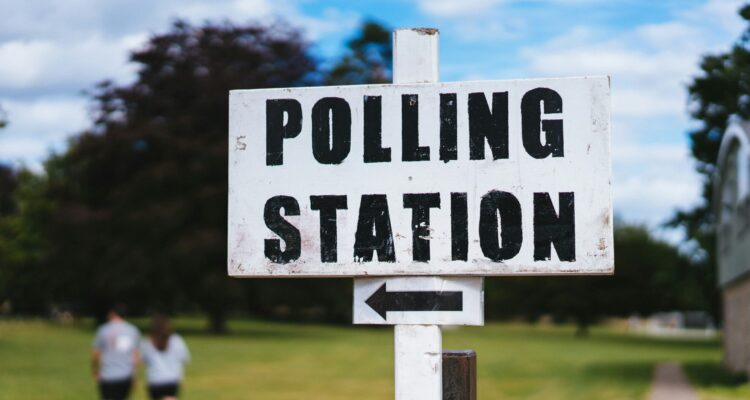BVRLA Chief Executive, Gerry Keaney said: “We congratulate Keir Starmer and his party on their strong election win. The change of government brings a change of direction. After a period of great political uncertainty, the industry collectively hopes for stability that will allow action to be taken and progress to be achieved.
“The time for blanket decarbonisation policies has been and gone. As the transition towards cleaner, greener vehicles evolves, the need for specific interventions becomes clear. Up to now, powerful tax incentives for company-provided cars have accelerated adoption among fleets but left retail and rental lagging. For the transition to be embraced by all sectors, targeted action is needed. Charging infrastructure, the used market, and vans are just three of the areas demanding closer attention.
“Guided by our members, we will continue to be a clear voice for the sector and its needs. Our work around the rental sector, used BEV market and transition to electric vans will ramp up as we continue to grow our influence with the Labour government and the key departments shaping UK transport.”
Mike Nakrani, CEO, VEV: “The new government’s pledge to reinstate the 2030 ICE ban and accelerate EV charging infrastructure, is a positive signal for the eMobility industry. Whilst commercial fleets are already leading the way in the transition from diesel to EVs, this is reliant on fleet-owners building their own charging infrastructure in their depots.
“Transport and logistics suppliers are key contributors to scope 3 carbon emissions*, moving goods and services through the country’s supply chains, and they need a network of charging infrastructure across the country – ‘green corridors’ – or funding support to build it.
“The new government’s pledge to deliver £1.8 billion investment in our port infrastructure would be a key element of the UK’s net zero journey. As hubs that feed our supply chains and the economy itself, ports are talking to us about how electrification of their supply chains will be a major step forward in UK decarbonisation.”
Richard Staveley, CEO, EO Charging: “The Net Zero mandate, a crucial objective for climate control, must continue under the new government. The Labour Party’s election manifesto, to positively impact climate change by accelerating the move to greener transport and developing the necessary infrastructure for electric vehicles (EVs) is welcomed by the sector. Now, at this critical time for climate change, the industry needs determined action and expects the Labour government to deliver on their election manifesto.
“Transport is responsible for almost a quarter of global emissions, with commercial fleets accounting for a large proportion of this. Emission-free transport is essential to ensuring the UK meets its Net Zero mandate, so making the transition to electric vehicles (EVs) will be a crucial component.
“We already know that developing and investing in the right infrastructure to support electrification is important, but focusing on the electrification of commercial and public sector fleets is fundamental. We need to see Labour developing and implementing a strategy that tackles the challenges to EV adoption and creates long-term reliable funding, particularly for commercial and public sector fleets, which stand to have the greatest environmental impact.
“Labour must commit to a robust funding strategy that transcends local politics and ensures a stable environment for fleet operators to transition to EVs. Exploring alternative funding models such as Scotland’s direct-to-operator approach, which streamlines the process and empowers fleets to use resources effectively, could be another answer.”
Adam Hall, Director of Energy Services at Drax Electric Vehicles: “The new Labour government’s priority must be to build on the growing momentum towards Net Zero and to support the EV industry to develop in a way that makes it work for everybody. Fast and accessible charging for all vehicle types – including vans and HGVs – along with government grants and subsidies are a key part of instilling confidence among businesses and consumers, making the prospect of switching to an EV an attractive one.
Fleet-operating businesses, who continue to be the driving force behind EV market growth, require clarity around future rates and taxes to help inform their decision-making. We’d therefore urge the government to prioritise the publication of Company Car Tax (CCT) rates for 2028 and beyond and give confirmation that the Plug-In Van Grant and Workplace Charging Scheme will continue past March next year.
At the same time, we’d ask them to explore other ways in which we can reward and incentivise businesses who invest in EVs and renewable energy infrastructure.
We’d also like to see a continued commitment to the implementation of the standards set out in the 2023 Public Charge Point Regulations, such as a 24/7 helpline for drivers and mandatory contactless payment options. There’s also an urgent need for more accessible charging, particularly for van drivers and disabled drivers, to ensure that everyone has the same positive experience while topping up their vehicle.”
Michael Topham, CEO, Biffa: “The transition to decarbonised energy and transport systems is increasingly urgent, and the waste sector must move to no or low carbon collection fleets.
“Biffa has already started to adopt alternative fuels across our fleet, with more than 94 battery electric vehicles and electric HGVs, and 64 renewable diesel (including HVO) fueled vehicles, in service.
“A huge obstacle to further decarbonisation, identified by Labour, is the electricity distribution grid. Here we need to up the pace, and we must ensure that costs for grid upgrades are not imposed only on the first to act.
“We also welcome Labour’s commitment to accelerating the roll out of charge points; shared charging infrastructure should be encouraged to save space in metropolitan areas. At all times it is vital that electrical commercial vehicles are given equal focus as domestic vehicles.
“To support the transition to net zero, we’re also urging the Government to introduce zero emissions zones, speeding up adoption of electric vehicles, stimulating innovation and investment in new technologies, and improving air quality and reducing noise.”
Asif Ghafoor, CEO of Be.EV, commented: “Labour should introduce a simple mandate that compels every local authority to open up 50% of their land for private companies to install EV chargers. They don’t have the capital or expertise to do it themselves. We don’t want any more rules or changes – that’s a headache for everyone. What we really need is continuity and certainty. This will really help charging networks to expand.
“There needs to be some encouragement to drivers, and we have a few options here. We could reduce the power cost for those who switch and get rid of the VAT on public EV charging costs. Norway is a good example. They gave free exemptions to the toll for EV drivers and gave free local authority parking as well. These aren’t expensive and they went a long way in creating a more positive feel about EVs.
“We have an opportunity to be world leaders in EV chargers. We have the expertise and capital to do it, and if we do it successfully, we can export this to other countries, creating jobs and investment along the way.
“Every time previous Governments have had a mandate to encourage green finance investment it’s ended up being a disaster. We should have less government involvement. There’s enough capital and expertise in the UK that all the Government needs to do is simplify things and let the private sector get on with it.
“The obsession with a total number of chargers being installed is unhelpful. It leads to far too many cheap lamppost chargers being installed, which are not only slow, but will become nothing more than street clutter in the next three years.
“Instead, the Government should set clear targets that each DNO needs to deliver a certain amount of power to chargers on an annual basis or they get fined! It’s simple – we need more of a focus on installing faster chargers and put the pressure on DNOs to get them to speed up the transition.
“Instead, they should have targets for chargers in their area to provide a certain amount of power to encourage more useful chargers. If they don’t meet these targets they should be fined. The LEVI fund has been a complete waste of time and needs to be scrapped. It means local authorities spend a lot of time faffing around unnecessarily for very little progress.
“Finally – bring the 2035 ban back to 2030. It’s an achievable goal that won’t cost the Government a lot, but will be a huge psychological boost that will get people feeling good about EVs again.”
Antoine Picron, Senior Policy Manager for UKI at ChargePoint said: “A change in Government represents an exciting opportunity for the EV industry, with the incoming Government already promising to reinstate the 2030 ICE mandate.
With more EV drivers on the roads than ever – a massive 377% increase in registered vehicles on UK roads compared to four years ago – a Government more interested and invested in this EV is a welcome sign. There is huge opportunity to develop the UK’s charging infrastructure and charge point roll-out across the country, hastening the adoption of EV by consumers and addressing the current reality that there are not enough public EV charging stations and the utilisation pressure on them will continue to grow as a result of organic EV adoption, as well as adoption driven by this mandate.”
* Greenhouse Gas Protocol – Scope 3 emissions are the result of activities from assets not owned or controlled by the company, but that the organisation indirectly affects in its value chain.






